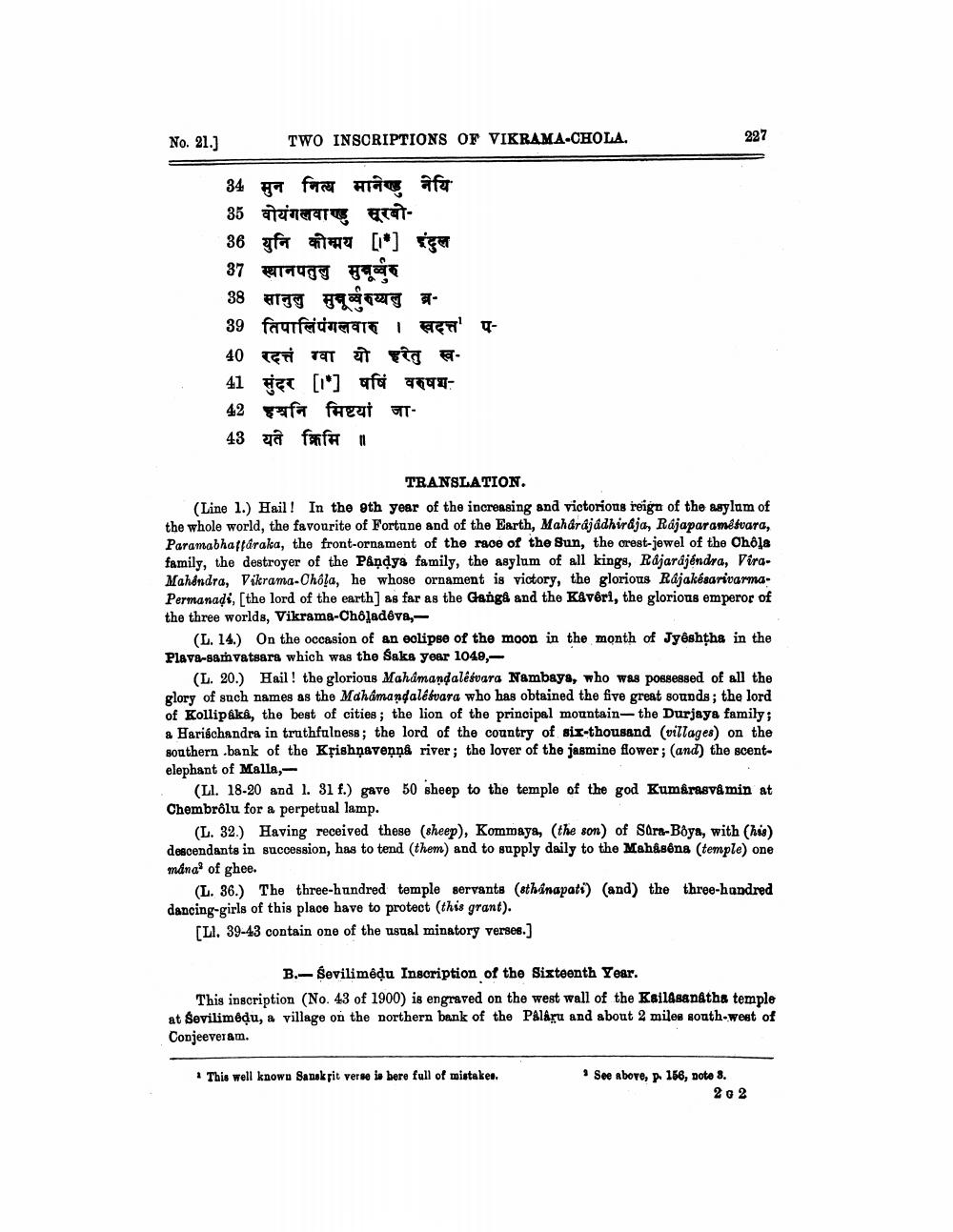________________
No. 21.)
TWO INSCRIPTIONS OF VIKRAMA-CHOLA.
227
34 मुन नित्य मानेड नेयि 35 alungatu eta 36 gfa 147 [*] siqaret 87 1948 38 egg gamug # 39 fquifiutat i el 440 TET ATT Fica 41 ET ['] of un42 fa faYI - 43 â ffH
TRANSLATION (Line 1.) Hail! In the 9th year of the increasing and victorious reign of the asylam of the whole world, the favourite of Fortune and of the Earth, Maharajadhiraja, Rajaparamétvara, Paramabhaftáraka, the front-ornament of the race of the Sun, the crest-jewel of the Chola family, the destroyer of the Påndya family, the asylum of all kings, Rajarajendra, ViraMahendra, Vikrama-Choļa, he whose ornament is victory, the glorious RajakesarivarmaPermanadi, [the lord of the earth) as far as the Gange and the Kávêri, the glorious emperor of the three worlds, Vikrama-Choladeva,
(L. 14.) On the occasion of an eclipse of the moon in the month of Jyêshths in the Plava-samvatsara which was the Sake year 1049,
(L. 20.) Hail! the glorious Mahamandalesvara Nambaye, who was possessed of all the glory of such names as the Mahamandalesvara who has obtained the five great sounds; the lord of Kollipáka, the best of cities; the lion of the principal mountain- the Durjaya family; & Harischandra in truthfulness; the lord of the country of six-thousand (villages) on the southern .bank of the Krishnavenná river; the lover of the jasmine flower; (and) the scentelephant of Malla,
(Ll. 18-20 and 1. 31 f.) gave 50 sheep to the temple of the god Kumarasvå min at Chembrôlu for a perpetual lamp.
(L. 32.) Having received these (sheep), Kommaya, (the son) of Sara-Bøya, with (his) descendants in succession, has to tend (them) and to supply daily to the Mahasena (temple) one måna of ghee.
(L. 36.) The three-hundred temple servants (sthanapati) (and) the three-handred dancing-girls of this place have to protect (this grant).
[LI. 39-43 contain one of the usual minatory verses.]
B.- Sevilimêdu Inscription of the Sixteenth Year. This inscription (No. 43 of 1900) is engraved on the west wall of the Kaildsanátha temple at Sevilimedu, a village on the northern bank of the Paláru and about 2 miles south-west of Conjeeveram.
* This well known Sanskrit verse is bere full of mistakes.
• See above, p. 156, pote 8.
26 2




